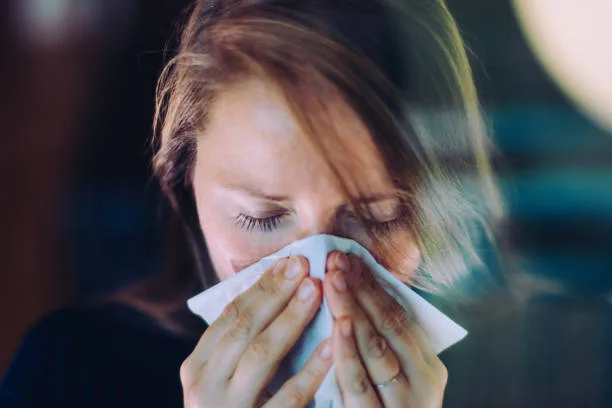Can you get the flu back to back : Nobody likes to contract the flu, much less two cases in one season. Few diseases are more uncomfortable than the flu, which has a long list of symptoms that includes fever, aches and pains, coughing, sore throats, and exhaustion.
Can you get the flu back to back
Even while the majority of individuals recover from the flu in 1-2 weeks, this does not mean that you won’t have it again. In fact, the flu can re-infect you in a few of weeks.
what causes flu?
Fever, runny or stuffy nose, body aches, sore throat, cough, and exhaustion are some of the symptoms of the flu. Since it is challenging to distinguish influenza from COVID-19 or another respiratory virus, getting tested is essential to determining whether therapy is required. If detected early in the course of the illness, high-risk individuals may be able to receive treatment.
The risk of being sick twice in a short period of time—that is, getting the flu and another respiratory infection—is a typical worry during flu season. Since it is regrettably possible to get numerous illnesses at the same time, strengthening your immune system via proper cleanliness, enough sleep, and a healthy lifestyle will help lower your chance of developing multiple illnesses at the same time. Indeed, it is possible to contract the flu twice in a single season. This is mostly due to the fact that multiple strains of the virus are typically prevalent at the same time. You might not be completely immune to new strains of the flu even after you’ve recovered from the first one.
Your body will develop some resistance to the particular strain of flu that afflicted you. But the flu virus is always evolving, looking for new ways to subvert your defenses. You’ll be susceptible to the flu once more because your body won’t be able to adapt to any of these changes.
Go to Homepage
types of Flu
Additionally, there are various strains of the flu, including virus A and flu B. Having one kind of flu does not protect against getting another, particularly if there is no seasonal flu.
The symptoms of flu A and flu B are similar. The severity ranges, with many people experiencing mild symptoms to severe symptoms in certain high-risk populations, including as pregnant women, of age over 64, children under 5 (particularly infected ones), and those with underlying medical disorders.
Infants are more prone to contract influenza A, but school-age children are more likely to contract influenza B. Both influenza A and B cause mild to severe symptoms in the majority of healthy youngsters. However, the symptoms of flu B can be more severe in kids younger than five. Flu A can be more severe in of age.

What is Flu A and Flu B ?
Both types A and B of the flu typically start out with a sharp fever before developing other symptoms.
The two forms of flu that commonly transmit among people are flu A and virus B.
Flu A is more dangerous than flu B and can result in serious illnesses like swine or bird flu. Flu A viruses, which evolve two to three times more quickly than flu B viruses, frequently infect wild birds and other animals. Almost solely affecting humans, virus B is less prevalent than flu A. The majority of flu symptoms should go away on their own with over-the-counter medicine, fluids, and rest. A physician may recommend antiviral medications (like Tamiflu) for the treatment of the flu to patients who are more vulnerable to complications from the illness, such as those with asthma, diabetes, or heart disease. Since the flu is a virus, treating it with antibiotics is not advised.
How to cure Flu ?
Seek medical attention if your symptoms intensify or don’t go better after one to two weeks. See the ER if you experience severe weakness, difficulty breathing, chest pain, or inability to stop vomiting.
Getting vaccinated against the flu each year is the most effective method of developing immunity. The four influenza viruses that scientists predict will be most prevalent during the next flu season are protected against by a seasonal vaccine.
Prior to the height of flu season, in early to mid-fall, is the perfect time to have a flu vaccination. Nevertheless, waiting until later in the season (January or later) to get the shot can still be beneficial.









